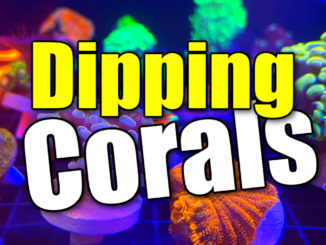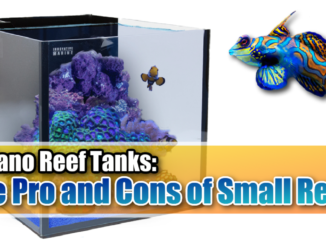
When talking about reef tank “parameters” The term parameter refers to the various chemical and physical characteristics of the water that affect the health and well-being of the organisms (corals, Inverts and fish) living within the tank.
Monitoring water parameters is an important part of maintaining a healthy and thriving reef tank. Here are some of the most important parameters to test for in a reef tank:
- Temperature: The ideal temperature for a reef tank is typically between 75-80°F (24-27°C). Reef Tank Temperature fluctuations can stress corals and fish, and can also promote the growth of harmful bacteria. The most likely piece of equipment that will fail in a reef tank is a heater.
- pH: Reef tank pH should be maintained between 8.0-8.4. Low pH levels can lead to decreased coral growth and stress on fish and other inhabitants.
- Salinity: The salinity of a reef tank should be kept between 34 and 36 ppt (or 1.024 to 1.026 SG). Fluctuations in salinity can stress corals and fish, and can also lead to health problems, even death.
- Alkalinity: Alkalinity, also known as carbonate hardness (KH), is important for maintaining stable pH levels. The recommended range for alkalinity in a reef tank is 8-12 dKH.
- Calcium: Calcium is essential for coral growth and should be maintained at a level of around 400-450 ppm.
- Magnesium: Magnesium is also important for coral growth and should be kept at a level of around 1,250-1,350 ppm.
- Nitrate: Nitrate is a nutrient that can promote the growth of algae, and should be kept at low levels in a reef tank. The recommended range for nitrate is less than 5 ppm.
- Phosphate: Phosphate is another nutrient that can lead to excess algae growth, and should be kept at low levels. The recommended range for phosphate is less than 0.04 ppm.
- Ammonia and Nitrite: Ammonia and nitrite are toxic to fish and other inhabitants of a reef tank. These parameters should always be at zero.
What Is The Best Way To Test Reef Tank Parameters?
There are several ways to test the parameters in a reef tank, and the best method depends on the specific parameter being tested. Here are some commonly used methods:
- Temperature: A thermometer can be used to measure the water temperature in the tank.
- Salinity: A refractometer or hydrometer can be used to measure the salinity of the water.
- pH: A pH test kit or pH meter can be used to measure the pH of the water.
- Alkalinity: A titration test kit can be used to measure the alkalinity of the water, but hands down we prefer the Hanna Alkalinity Checker.
- Calcium and Magnesium: Test kits are available to measure the levels of calcium and magnesium in the water. We also prefer Hanna Instruments for these parameters as well.
- Nitrate and Phosphate: Test kits are available to measure the levels of nitrate and phosphate in the water.
When testing the parameters in a reef tank, it’s important to follow the instructions carefully and to use high-quality test kits. Regular testing is also important to monitor the water quality and to make adjustments as needed to maintain the optimal conditions for the organisms living within the tank.
In summary, monitoring water parameters is important for maintaining a healthy and thriving reef tank. Regular testing and monitoring of temperature, pH, salinity, alkalinity, calcium, magnesium, nitrate, phosphate, ammonia, and nitrite can help to detect any imbalances and take corrective action before they become serious problems.




